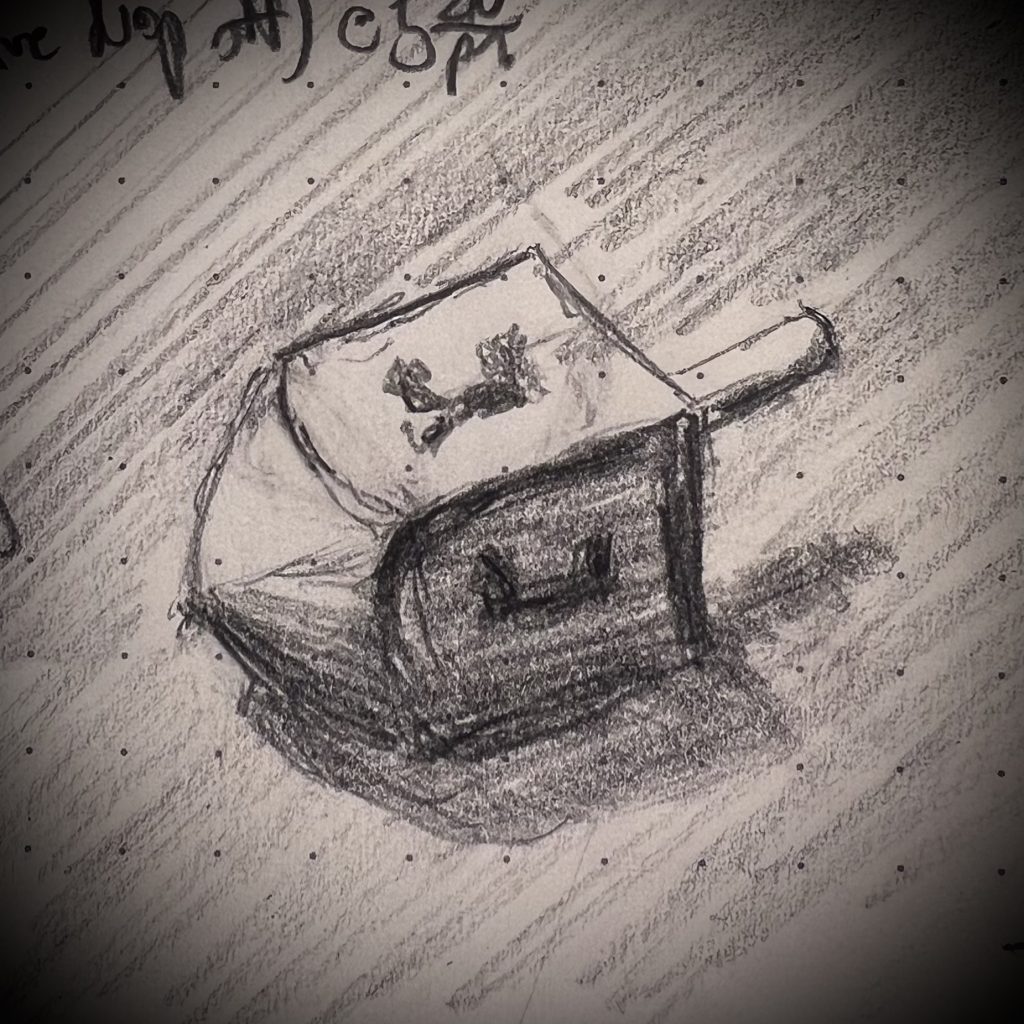Last week was Chanukah, which means I had dreidels lying around, hence this sketch from life. If anything demonstrates my progress over the last two years of sketching, this is it:
In real life, a dreidel is a roughly rectilinear solid that’s basically a modified cube, each side of which is bears a roughly rectilinear character, inscribed squarely on that face. The whole thing has radial symmetry along a central vertical access (or else it wouldn’t spin).
In a drawing, there isn’t a single 90º, nor a single non-angled line. Drawing it accurately to life means making everything about it wrong on the paper. Two years ago that simple fact made me batshit insane; my stupid eyes saw 90º angles all sorts of places where they were not actually visible, and even when I convinced my eye to see what it saw instead of what it knew, my traitorous hands kept drawing the 90s they knew to be true in life, rather than the 85s and 95s and 142s the eyes could see from where they were sitting.
This time? None of that sturm und drang. I spun a dreidel, I saw a dreidel, it fell, and I drew:

Tonight I’m told is Erev Kristmas. May it be a joyous one to those who observe, and a peaceful Nittel Nacht for the rest of us.
Just frontin’. I fucking know it’s Xmas; I’m a half-a-Jew by birth. I’m just bustin’ your balls.
please don’t hurt us

